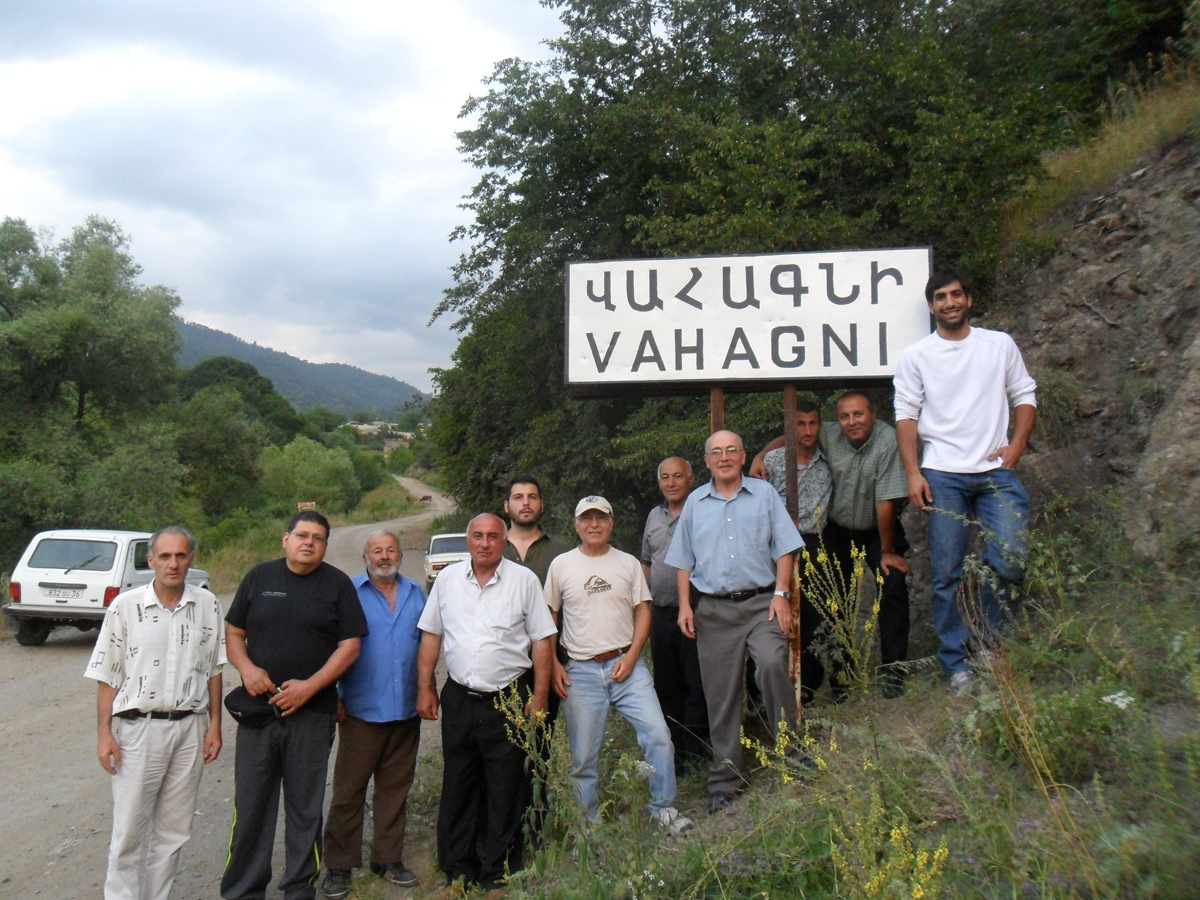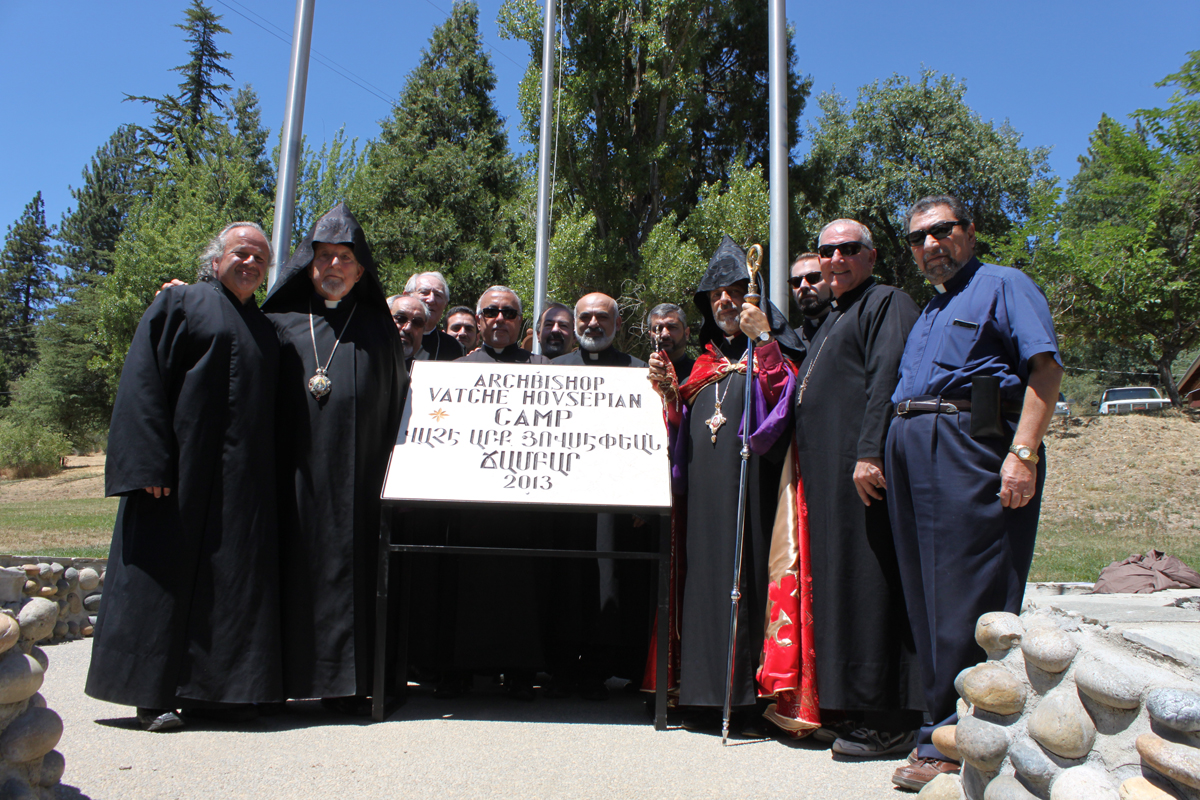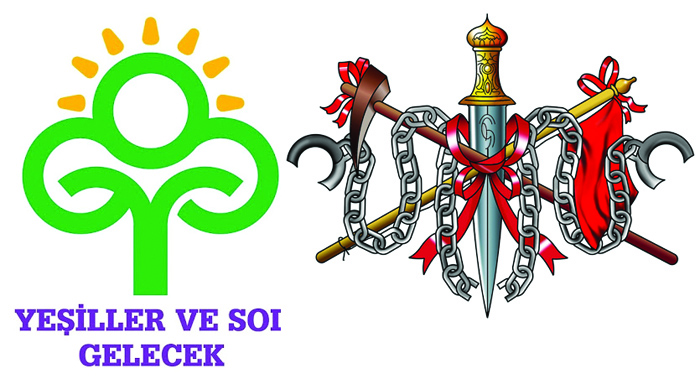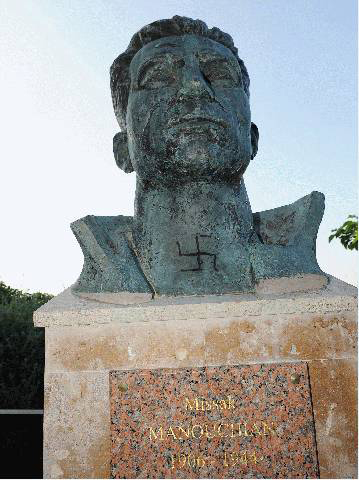By: Rev. Dikran Youmshakian
Seven volunteers from the United States and two volunteers from Armenia made all the difference in the Village of Vahagni in the Lori region of Armenia. This group included two constructors, an engineer, a medical student, two mechanics, an auditor, a graphic designer and a minister. They traveled on their own expense and dedicated their talents to renovate a medical clinic which was built by the Italian Government in 1989. This clinic was set as a temporary facility to serve seven villages by replacing a hospital which was completely destroyed during the tragic earthquake of 1988. The temporary facility remained in service for almost 25 years but needed urgent repairs.
As we entered Vahagni, the village sign foreshadowed the depressing conditions that we were yet to encounter. It was an old rusted sign in Armenian and Russian that was hard to read. The bumpy dirt road leading to the village was difficult to drive on. We were very surprised that the van and old truck carrying us and the building supplies even made it to the clinic in the center of the village, given the terrible road conditions. The clinic was in a much worse state than we had anticipated. Several holes on the roof had let rain water pour through creating hazardous mold on all of the walls. There was only one heater, an old portable one. Water was leaking from old faucets. Electric wires were hanging loose from the ceiling. The floor was in terrible condition, each step more uneven than the last. Outside the clinic was no different with cracked walls and chipped paint. They had built a fence using old refrigerator doors and rusted pieces of sheet metal to isolate the property. Weeds had covered most of the unpaved path leading to the clinic.
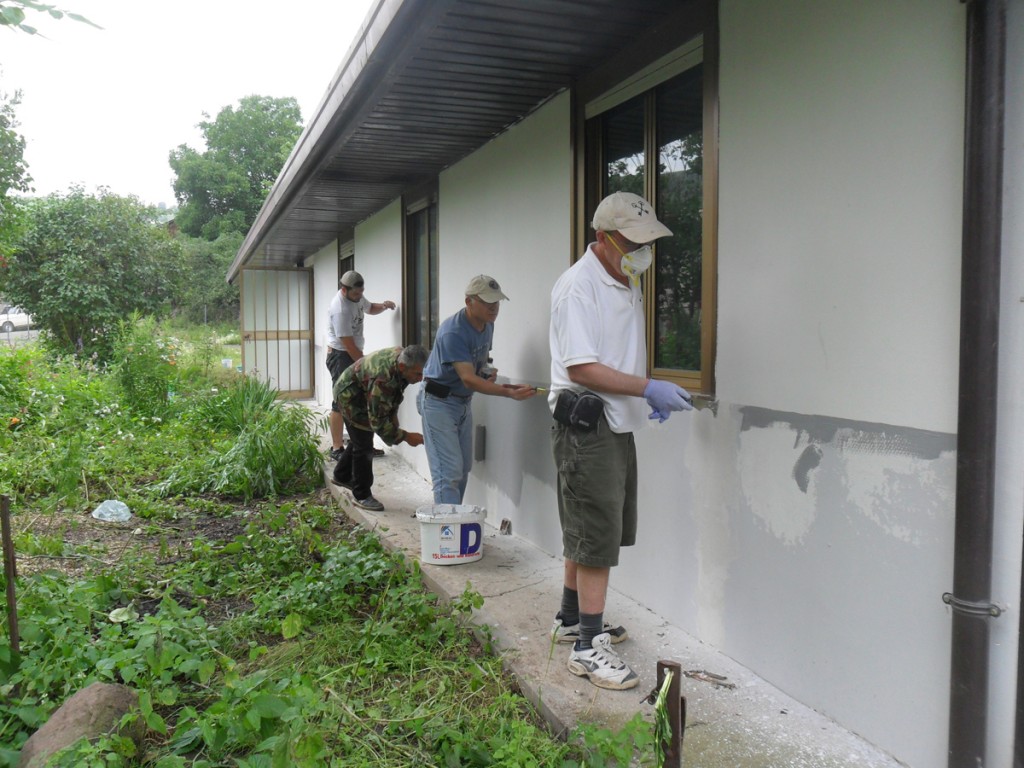

Life in the village is a total struggle. There are no businesses. A clothing factory that once employed 500 people was shut down after the collapse of the Soviet Union. “Rather than keeping it in operation,” Mr. Alex Timaksyan, our host, said, “those in charge sold the equipment.” The only source of income the village had evaporated just like that. People in the village were forced to leave and move either to Vanatzor or Yerevan. Today however, the situation has not changed. There is an outflow from this village and almost all parts of Armenia to Russia and overseas, as people are seeking better employment opportunities. According to the mayor of the Village, Mr. Bedros Kochinian, the number of people inhabiting the village today is 1200, but most villagers claim the number is much less. Only those who are devoted to the land of their ancestors remain, yet they struggle to survive. “We have history here,” Alex said, “it goes back to the days of Vartanantz. Our family’s name is connected with the history of Vartanantz according to historian Movses Khorenatzi.” Alex was a film director once, but now he herds cows and keeps chickens. His work starts before dawn and does not end until much after dusk. They have fields, but no equipment for agriculture. He and others like him who are dedicated to staying in Vahagni are the only hope for the future. However, they are in great need of help. Minor improvements in the village, such as paving the roads and providing them with agricultural tools will help support this village. “Thank God we are not dying of hunger,” Alex said, “but the government should show some mercy to the villages. We will make this land prosper. We are the heart of our homeland,” he added.
You could see the pain in his and his wife’s eyes. Their parents once were exiled for 17 years in Siberia, miraculously surviving and returning to the village. Their oldest son, Marat, was 20 years old and was in military service in Karabagh. In June of 2012 they received the painful news that he had been shot and died on the way to the hospital. The village does not have a church, so his body was just laid in a cemetery overlooking the village. The only church building in the village was unfortunately destroyed during the earthquake and was never rebuilt. “It was not functional anyway,” Alex said, “for during the Soviet era, it was used as storage.” I noticed that the people in the village are thirsty to hear the Word of God. They need to experience love and hope that only God can provide.
Ignoring their hardships, the villagers are very welcoming and hospitable. They all invited us into their homes and shared with us their home grown food. The khorovadz (Pork Kebab) was most delicious. They were delighted to have a group of Armenians from overseas. This was the first time that a group of volunteers had come to help. Some villagers asked why we are doing this. “For the love of the land and for the love of God,” we answered. While I was painting the back wall of the clinic, one elderly person said, “You don’t need to paint here, no one will see.” “God will,” I answered and started a conversation about faith with him. He was very anxious to hear more.
We started work on Monday, July 1, and within 10 days, we had completed our project. The roof was fixed, the mold was cleaned, the walls were painted, a metal fence was built around the property, the floor was evened and covered with linoleum, seven electric heaters and a water boiler were installed, new light fixtures were put in place, the bathroom was renovated, a new refrigerator was purchased and was gifted to the clinic. The clinic is now operational to the satisfaction of the doctor and the mayor. We also had to renovate the sign at the entrance of the village. People now clearly can read in Armenian and English the name VAHAGNI. The mayor of the village officially acknowledged our service and thanked us on behalf of the seven villages that depend on this clinic. He also expressed his desire to see us next year with another project.
On Wednesday, July 10 as we were leaving the village we stopped at the repaired sign and took a group picture with Mayor Kochinian and Dr. Hagopian. As we were leaving, Alex, who had a sense of humor said, “it is good that you cleaned the sign, but now the villagers, who are used to the old rusted sign, will be confused and will miss the exit.”
This new sign however will remind the villagers that there is hope, that there are Armenians in the diaspora who care. Together we can make a difference and we should for the sake of our Motherland.
This mission project was organized by Dorcas Aid America (DorAid), a Christian charitable organization which is an affiliate of Dorcas Aid International based in the Netherlands. Dorcas serves in several countries around the world including Eastern Africa, Eastern Europe, former Soviet Republics and the Middle East. The focus of Dorcas is one of relief and development. For more information please visit www.dorcas.net or www.doraidamerica.org.
Rev. Dikran Youmshakian is the Director of DorAid America and the Pastor of the Armenian Bible Church of Hackensack, NJ.

